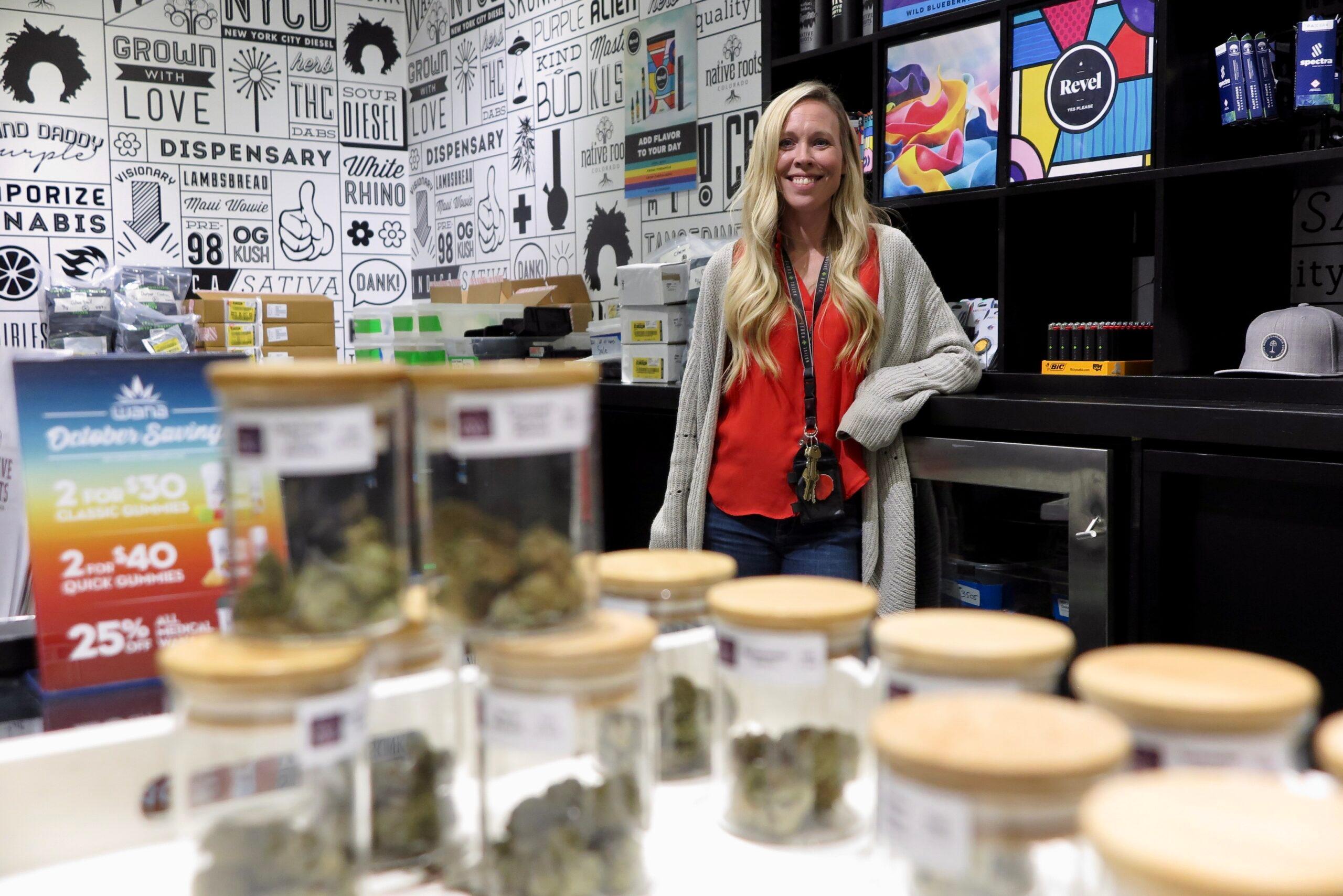
In the back office of the Native Roots medical marijuana dispensary on Austin Bluffs Parkway in Colorado Springs, there’s a box of yard signs manager JeNelle Bowman has been handing out to anybody who wants one.
“I’ll have customers come in like, ‘Hey, I really like that sign, do you have any extra ones?’” Bowman said. “People are excited.”
The yard signs urge city residents to vote in favor of ballot questions 300 and 301, which would allow the sale and taxation of recreational cannabis within the city limits of Colorado Springs for the first time since the state legalized the industry a decade ago.
Passage of the measures would mark a dramatic shift for the state’s second-largest city, known for its conservative politics and heavy emphasis on the defense industry.
The five military bases surrounding Colorado Springs, and its fitness-focused “Olympic City USA” branding have for years been used by local elected leaders as primary reasons for rejecting the legalization of recreational cannabis. Marijuana is still illegal federally and active-duty service members can still be arrested, dishonorably discharged and more for possessing the drug even in a pot-friendly state like Colorado.
However, a dearth of qualified military recruits and greater societal acceptance has led branches like the Air and Space Forces to consider changing its stance, at least with regards to applicants who test positive for THC — the psychoactive ingredient in cannabis. Also, earlier this month the Biden Administration announced it would begin a review of marijuana’s classification as a Schedule 1 controlled substance.
Citizens brought up the evolving nature of federal perspectives on cannabis in a public hearing on the citizen-led ballot initiatives, though it did not dissuade the Colorado Springs City Council from issuing a resolution opposing passage of the measures.
Stephanie Vigil, who is currently running for a State House seat and supports the ballot measures, told the council that recreational marijuana is already within the city limits in the possession of customers who purchased it in other communities.
“The only thing we seek to change with this initiative is where the money ends up, specifically our tax revenue,” Vigil said.
Your Choice COS, the citizen-led political spending group supporting the measures, estimates the city of Colorado Springs has lost out on between $10 million and $15 million in local taxes by not allowing the recreational industry from the outset. Ballot Issue 301, which handles the taxation of recreational marijuana in the city if Issue 300 is passed, would provide money to municipal coffers to be used “solely for the purpose of funding public safety programs, mental health services, and post-traumatic stress disorder treatment programs for veterans.”
Two-term Colorado Springs Mayor John Suthers has remained a staunch opponent to allowing the sale of recreational marijuana in the city. Now, in his final months in office, he said he does not regret that position if voters overrule him.
“We’re doing fantastic from an economic standpoint in Colorado Springs,” Suthers said. “The cost that’s passed on to the health care system, to our schools, to our correctional facilities … far exceeds any economic benefit from [recreational marijuana.]”
At Native Roots, JeNelle Bowman argues that not only would her stores bring in more tax dollars for the city if recreational marijuana were legalized, but she would almost certainly be hiring more employees.
“I have probably at least 20 different customers coming in a day looking for [recreational] and unfortunately we have to send them to Manitou [Springs],” she said.








